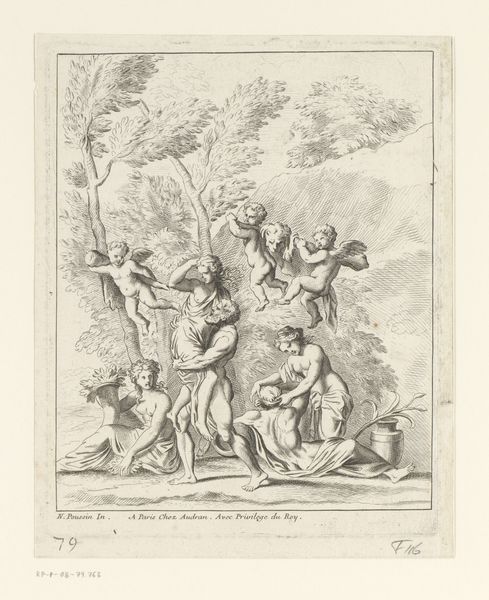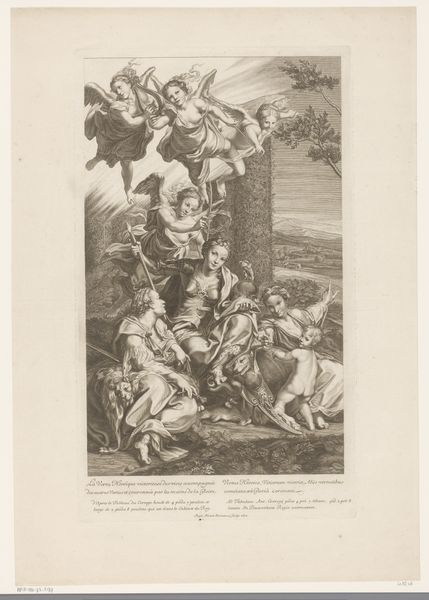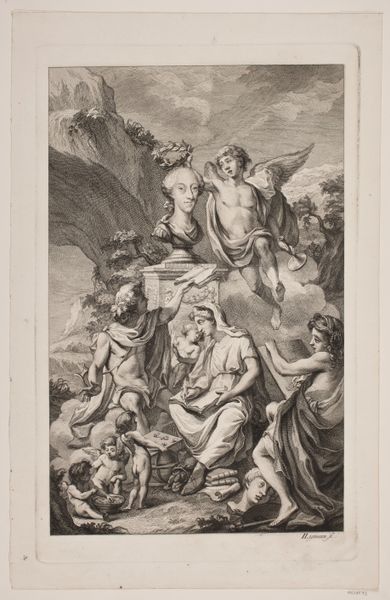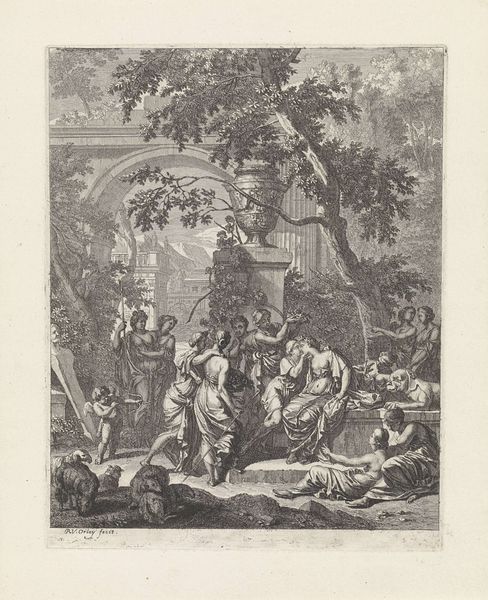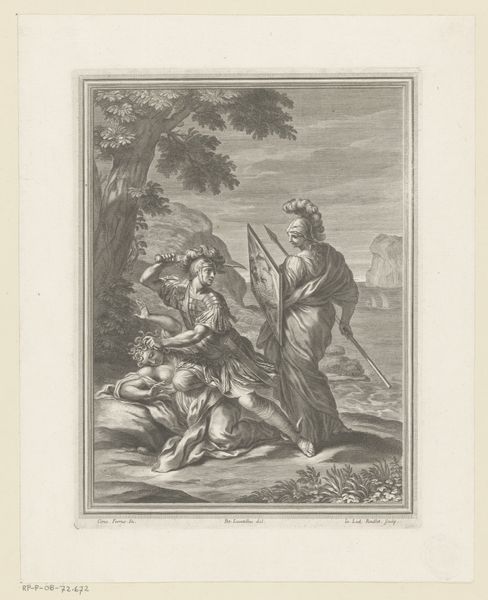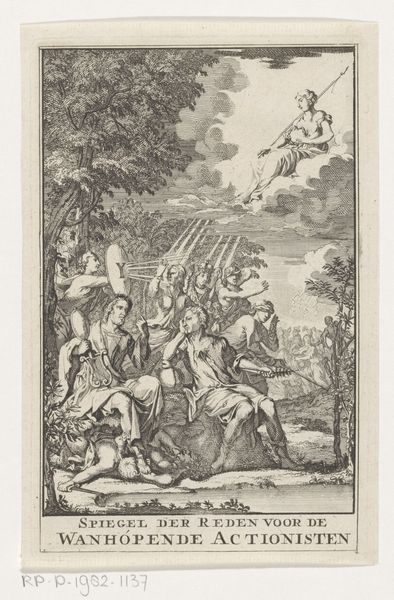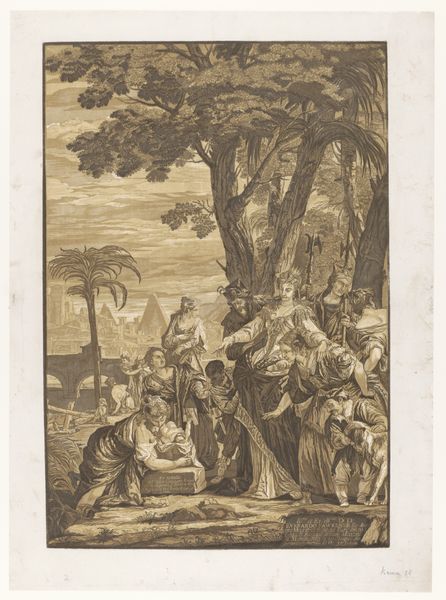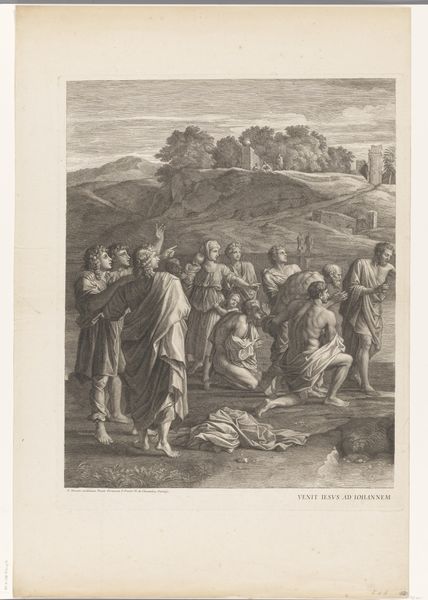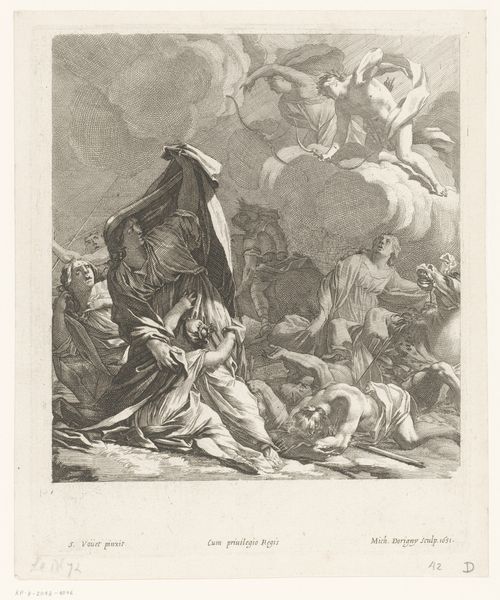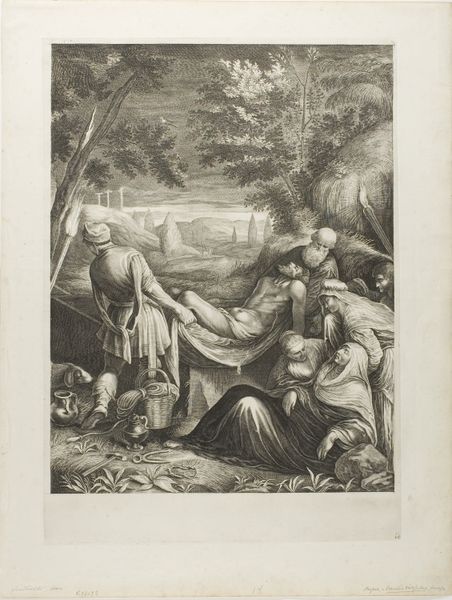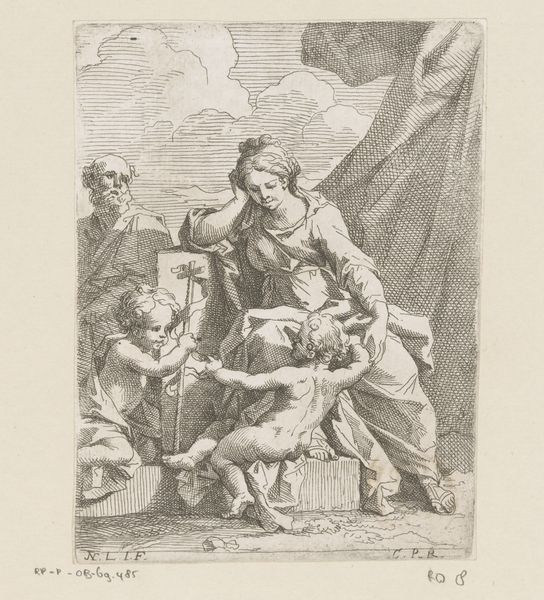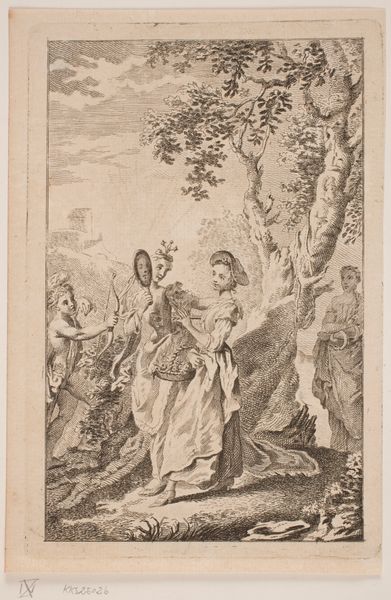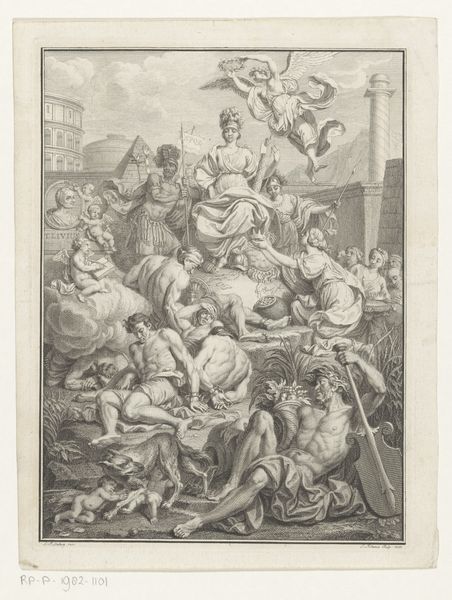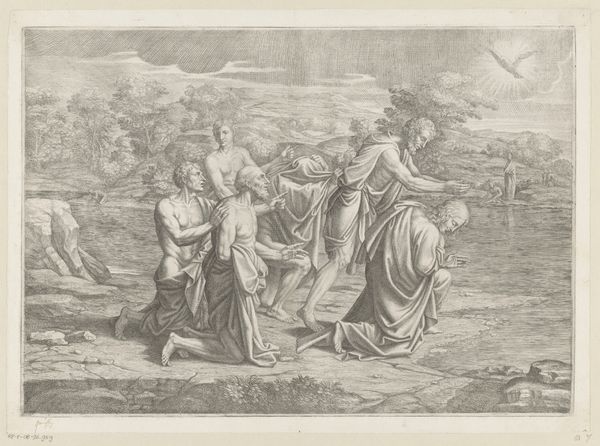
St. Benedict Fleeing from Shameless Women c. 17th century
0:00
0:00
print, etching, paper, engraving
#
baroque
# print
#
etching
#
landscape
#
figuration
#
paper
#
line
#
history-painting
#
italian-renaissance
#
italy
#
engraving
Dimensions: 14 7/8 x 8 9/16 in. (37.78 x 21.75 cm) (plate)18 x 11 13/16 in. (45.72 x 30 cm) (sheet)22 3/16 x 18 1/16 in. (56.36 x 45.88 cm) (mat)
Copyright: Public Domain
Giacomo Maria Giovannini created this print of St. Benedict fleeing from shameless women, sometime between the mid-sixteenth and early seventeenth centuries. It stages a foundational story of the Benedictine order, a story about the temptations of the flesh, and the saint’s rejection of it. The image creates meaning through its deployment of visual codes relating to gender, power, and morality. Made in Italy during the Baroque era, the print reflects the period's emphasis on religious subjects, but the sensuality of the women is striking. Their actions and immodest dress are meant to represent a threat to Benedict’s piety, a cautionary tale about the dangers of succumbing to temptation. We might consider the role of the Catholic Church as patron of the arts at this time, and what its effect was on artistic production. Was the artwork meant to reinforce religious doctrine? Or did it, perhaps, offer a more nuanced view of human desire? To answer these questions, we would look at the archives of the Benedictine order, religious treatises and popular literature of the time.
Comments
No comments
Be the first to comment and join the conversation on the ultimate creative platform.
